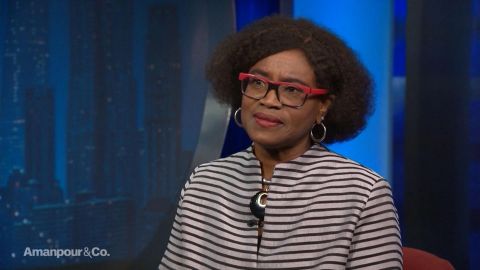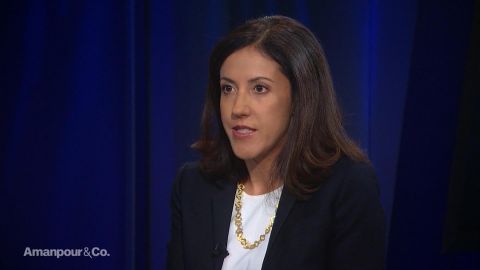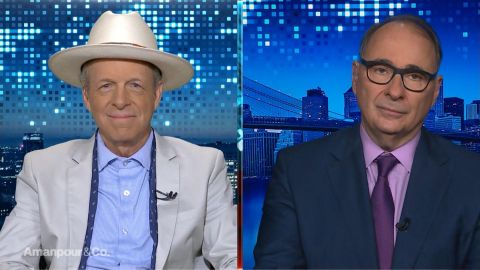Read Transcript EXPAND
CHRISTIANE AMANPOUR: Question: is this a turning point? Is this perhaps the last time we might see that kind of personal invective in the primaries within members of the party? What do you think, Dave, since they are Democrats?
DAVID AXELROD, CNN SENIOR POLITICAL COMMENTATOR AND FORMER CHIEF CAMPAIGN STRATEGIST FOR BARACK OBAMA: Yes. No, I don’t — look, I think the history of these things is they don’t get calmer as they move on, they get more competitive. It may be that people will stay away from the more personal sort of attack. I think Secretary Castro, who I know well, and like, made a bad mistake there because Joe Biden, whether people have doubts about him or not, is a very well-liked figure within the Democratic Party, and that seemed like a gratuitous shot and it wasn’t even completely true. He kind of misstated Biden’s position. So, you know, it’s bad to be rude and it’s horrible to be rude and wrong at the same time, and he did both. And I think that he was a guy who was trying to leverage his way into the race and he may have cost himself whatever small chance he had to do that.
AMANPOUR: Well, so, that’s interesting. Mark McKinnon, obviously, you are from the other camp, the Republican camp, and you’re clearly watching all of this very closely. So, obviously, Biden is the frontrunner and Julian Castro, for secretary, is much, much, much lower down the pecking order. What would you think in terms of watching it from the opposition’s point of view?
MARK MCKINNON, FORMER CAMPAIGN ADVISER TO GEORGE W. BUSH AND JOHN MCCAIN: Well, Julian Castro, who I admire, as well, I now him from Texas, he’s in the lower tier and he knows that he has to breakthrough in these debates in order get traction and break — and get into the upper tier of the race, and there’s two ways to do that. One is to propose kind of an outrageous or new policy idea, which he did at one of the last debates, decriminalizing border crossings, which got him a lo of press, or attack the frontrunner. And so, he did that last night. But, as David said, he did it in a way that it wasn’t really on policy so much and he did it more talking about the sort of age thing and worse than that, he was wrong. So, the irony of that, to me, was that literally seconds before that moment, I was talking with a colleague of mine about how well positioned Julian Castro was for the vice presidential slot and, you know, not only did he hurt his chances for — to be the nominee, he may have hurt his chances to be the VP
AMANPOUR: Wow. That’s pretty serious. Can I ask you both then to weigh in on what you think? I mean, obviously, this is about whittling down the Democratic field. That’s what the primary is about. Do you think that last night showed any clearer view of who in the bottom tier could be further whittled down before the next debate?
AXELROD: Well, first of all, they’re all going to be in the next debate and that will keep them in the race.
About This Episode EXPAND
Mark McKinnon and David Axelrod unpack the September 12 Democratic debate with Christiane Amanpour. Reverend Irene Monroe sits down with Michel Martin to discuss how to open up some religious communities to LGBTQ issues. Azadeh Moaveni joins the program to discuss the lives of the wives, widows and children of ISIS militants living in refugee camps in Syria.
LEARN MORE


